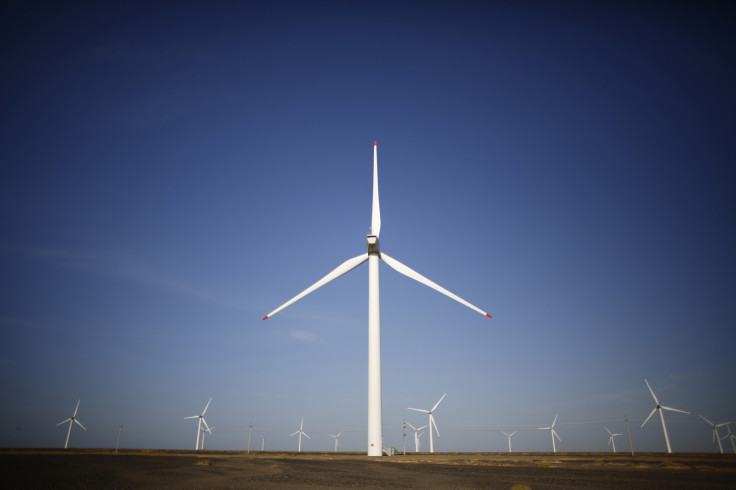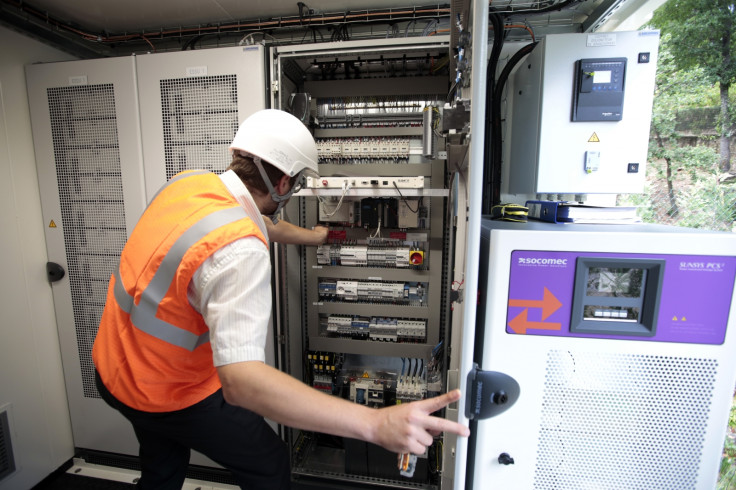How the clean energy revolution can prevent a cybersecurity disaster waiting to happen
Solar and wind energy industries need to secure themselves from hackers.

A survey of 377 fossil fuel companies has found that nearly 70% of American oil and gas companies have sustained cybersecurity breaches over the last year.
The breaches compromised confidential information and disrupted company operations, and mostly consisted of hacks of 'operational technology' – hardware and software that monitors and controls the performance of physical devices.
Yet as the world shifts to a low-carbon economy powered increasingly by renewable energy sources such as wind and solar, the challenges of cybersecurity will only grow.
The low-carbon economy will require a shift away from today's centralised fossil-fuel dependent power grids, towards interconnected smart grids which can manage the increasing electrification of our infrastructure.
It's rightly recognised that smart grids could pose vast new cybersecurity risks. Coupled with the emerging 'Internet of Things', smart grids will not just integrate renewable energy sources, energy storage devices and electric vehicles – but also household electrical appliances and other devices.
In a smart grid system, hackers would potentially be able to target not just power supplies, but the myriad devices interconnected with them through the Internet of Things.
The threat was finally acknowledged last year in the European Parliament's new Cyber Security Strategy for the Energy Sector. Yet policymakers so far have neglected the most compelling solution to the coming expansion of smart grids: decentralisation.
The fundamental problem of a smart grid is that a centralised, interconnected system will always be vulnerable to highly disruptive cyberattacks. In contrast, a distributed and decentralised system offers the opportunity to establish multiple redundancies at various layers, by which to limit and isolate the impact of attacks.
As long as we remain wedded to the old model, our efforts to secure the smart grid will fail to keep up with evolving cyber threats.
Decentralisation is key to disabling hackers
The most powerful pathway to a truly secure smart grid is a combination of decentralised energy production managed through microgrids. The idea is to foster more distributed energy generation in communities and homes, which can supply excess energy to the grid when connected, while continuing to supply power independently from the main grid if it goes down.
In short: smart grids can be decentralised so that the vast majority of communities and individuals rely on distributed electricity generation through microgrids, which can function independently from the main grid. This builds in redundancies that a more centralised smart grid simply cannot incorporate.

This model reduces dependence on centralised energy generation and associated transmission lines. Currently up to 70% of energy from centralised fossil fuel production is lost in the thermodynamics of the power plant, and in the transmission and distribution of electricity to consumers.
So by producing energy locally in communities and homes we maximise efficiency. And the savings made by installing shorter transmission lines in interconnected smart microgrids would help finance increased local clean energy production.
In turn, we also solve our fundamental cybersecurity challenge. Smart microgrids and decentralised clean energy would rule out the most dangerous and costly effects of cybersecurity attacks – by neutering their ability to disrupt power for hundreds of thousands, if not millions, of people.
But to make it happen, governments and businesses will need to tackle two fundamental challenges. Firstly, we require a proliferation of new shorter transmission lines that extract and feed in energy into the main grid. Secondly, we require greater investments in local energy storage solutions.
Creating a new, distributed renewable energy infrastructure thus solves our key problem: the need for safe, clean, low-carbon power.
Vicente Lopez Ibor Mayor is co-founder and Chairman of Lightsource Renewable Energy Limited. He is former commissioner of Spain's National Energy Commission and a former Special Advisor to the European Energy Commissioner
© Copyright IBTimes 2025. All rights reserved.





















